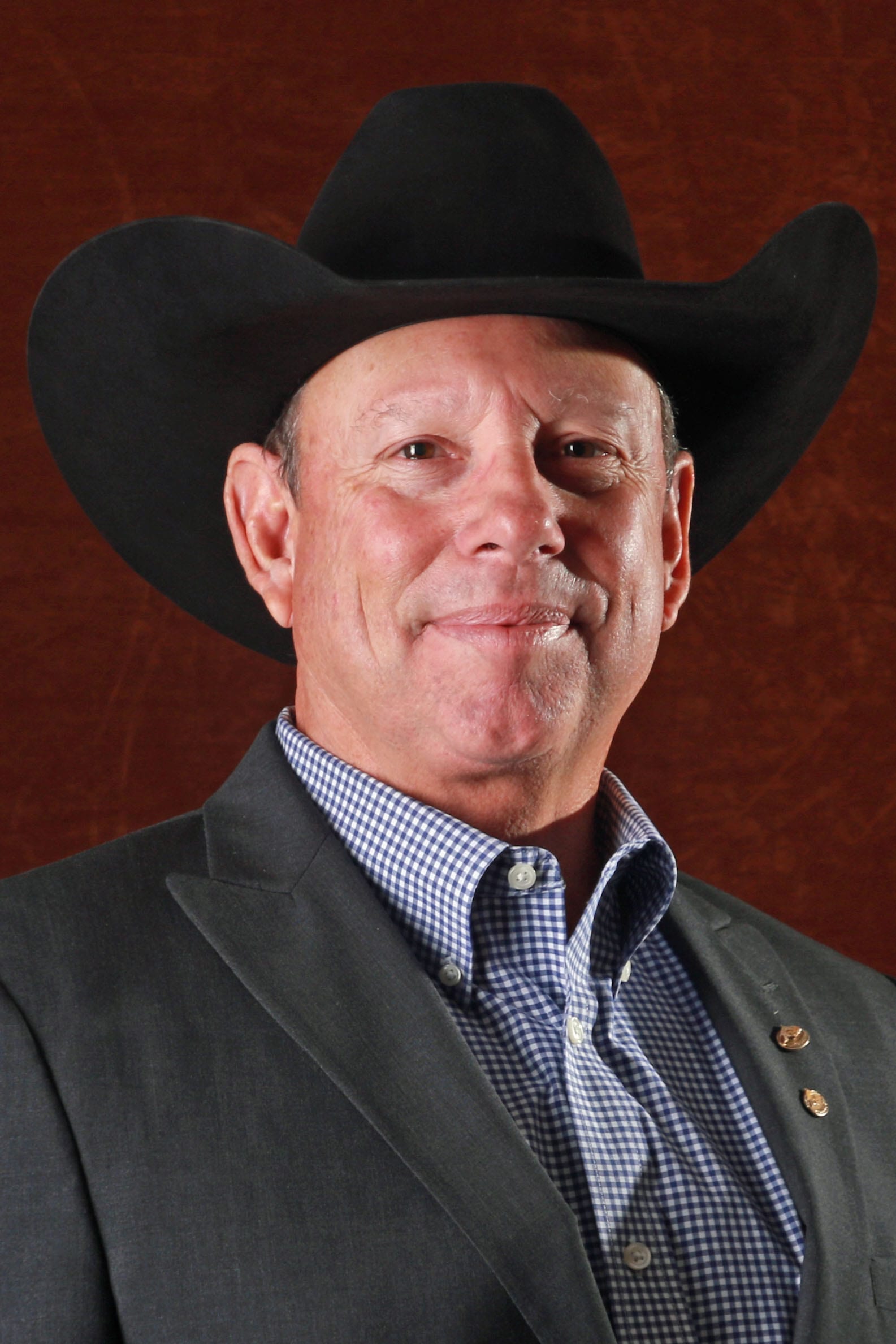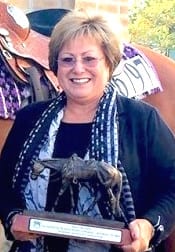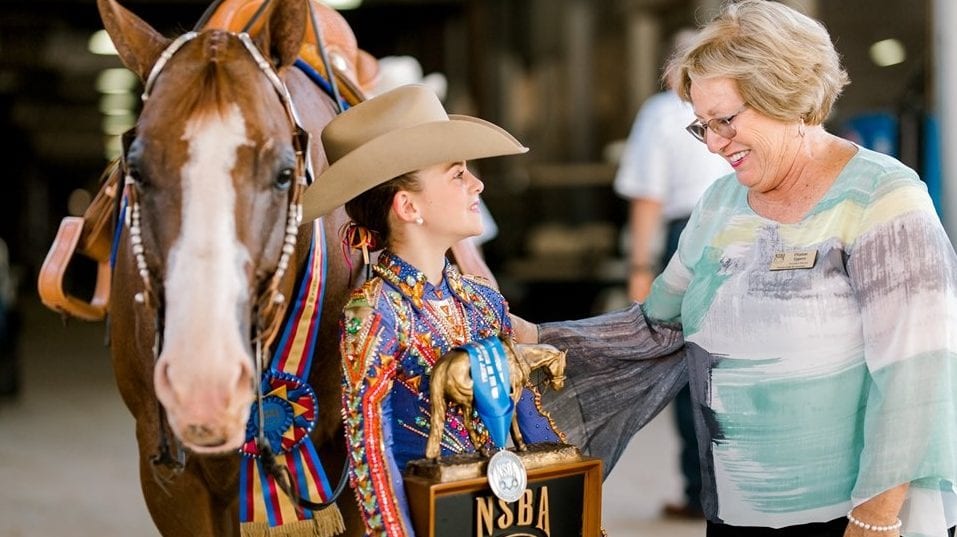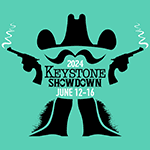Everyone has someone who they look up to in the equine industry, even world champion trainers. Often, those role models have a lot in common, whether it is their work ethic, attitude, or passion.
Emulating those traits to be a better horseman is a good goal for anyone to have, and doing so allows the industry to thrive.
We sat down with Dianne Eppers, NSBA Senior Advisor, and Leonard Berryhill, of Berryhill Quarter Horses, to discuss what a role model looks like to them. Berryhill was just awarded AQHA Professional Horseman of the Year in 2019.
“You look up to someone who has the characteristics that you admire and inspire you,” Eppers said. “A role model does not need to be a high-profile person, many times it is someone that you do not know personally, but admire how they conduct themselves, and they leave an impact on you. A role model comes in many different sizes, large and small.”
A hard worker
 Most role models have a strong work ethic and aren’t afraid to get the job done themselves, which is why others look up to them. Berryhill explained how world champion Denny Hassett is the definition of a hard worker.
Most role models have a strong work ethic and aren’t afraid to get the job done themselves, which is why others look up to them. Berryhill explained how world champion Denny Hassett is the definition of a hard worker.
“He wasn’t afraid to get dirty, get sweaty, and still go out there and lead a champion,” Berryhill said. “He just did it with hard work. Hard work, honesty, and always had a smile on his face. The ones that I have seen that are always really successful were always blue-collar guys who weren’t afraid to get dirty and hot and do the work. They might have helpers, but they were right alongside their helpers.”
Getting dirty and doing the work inspires other people to do the same. If their role model is working hard and has drive, they will too.
“You might go by their stalls, and they have a pitchfork in their hand and be cleaning a stall,” Berryhill said. “Role models aren’t afraid to go out and do their work.”
A gracious personality
Role models are formed in the moments when they think others aren’t watching. It’s what happens in those moments that is telling of who a person truly is. Role models are always gracious and humble.
“Be gracious to others, be gracious to your fellow competitors, be gracious to the staff at a horse show,” Berryhill said. “Understanding that there’s a lot of people that work for these people to be able to have a horse show and being gracious to those people. I think that is very important. I think people look up to that when they see that happen.”
If someone sees another person thanking an announcer or gate person, they might follow suit.
“We can inspire others by example,” Eppers said. “Show compassion for others.”
A positive attitude
 Eppers explained how a positive attitude is a vital trait of a role model. People look up to someone who always has a smile on their face, and is kind, no matter what.
Eppers explained how a positive attitude is a vital trait of a role model. People look up to someone who always has a smile on their face, and is kind, no matter what.
“You can keep a positive attitude if you love what you are doing,” she said. “Set goals and measure the journey, not the result.”
A positive attitude isn’t always innate, though.
“They don’t always come with that,” Berryhill said. “Some would be ultra-competitive and mad whenever they didn’t win, but in the end, they were nice to their fellow competitors, they were nice to the judges and nice to everyone else.”
Sometimes, that attitude has to be developed, which is fine. Going through that process is often humbling and very enlightening.
Dedicated to the industry
We often look up to those who we can always count on and shows up.
“The ones that are there early and still there late,” Berryhill said. “[One student] was there early and stayed late. We always had to pull her off her horses. She would ride and practice until she just couldn’t go anymore.”
Being committed to the betterment of themselves as a horseman and to the community often results in admiration from others.
“My role models had integrity, passion for the industry, and a commitment to the equine community,” Eppers said. “A horseman has a purpose, caring for their horses, sharing their knowledge with others, and growing the western lifestyle.”
In the end, hard work, dedication, and a good attitude will never go unnoticed.
“Being gracious to everyone else, being friendly and kind, doing your work, and working hard,” Berryhill said. “People will see that.”
The equine industry thrives on good horseman and role models and bettering oneself betters the community.
“We live and grow through a community of involvement,” Eppers said. “Encourage involvement at an early age. Learn the value of personal achievement, but greater achievement comes with the success of a team and the greater good.”








